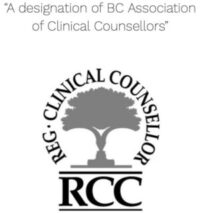Eating disorders are silent battles fought by millions worldwide, affecting individuals of all ages, genders, and backgrounds. These disorders not only pose serious physical health risks but also have a profound impact on mental and emotional well-being. In this blog post, we will delve into the world of eating disorders, explore their signs and symptoms, and discuss ways to support recovery. By raising awareness and fostering a supportive environment, we can help those affected find a path to healing.
Understanding Eating Disorders: Eating disorders encompass a range of complex conditions, with three of the most prevalent being anorexia nervosa, bulimia nervosa, and binge-eating disorder. These disorders often stem from a combination of genetic, psychological, social, and environmental factors.
- Anorexia Nervosa: Characterized by an intense fear of gaining weight, leading to extreme food restriction, self-starvation, and a distorted body image.
- Bulimia Nervosa: Involves recurrent episodes of overeating followed by compensatory behaviors like self-induced vomiting, fasting, or excessive exercise.
- Binge-Eating Disorder: Individuals with this disorder experience recurrent episodes of overeating, similar to bulimia, but without the compensatory behaviors.
Recognizing the Signs: Identifying the signs of an eating disorder is crucial for early intervention. While the symptoms may vary depending on the type and severity of the disorder, common indicators include:
- Dramatic weight fluctuations
- Obsession with food, calories, or dieting
- Excessive exercise
- Social withdrawal and isolation
- Frequent trips to the bathroom after meals (indicating purging)
- Preoccupation with body size and appearance
- Physical symptoms such as dizziness, fatigue, or hair loss
- Secrecy or defensiveness about eating habits
Supporting Recovery: Recovery from an eating disorder is a challenging journey, but it’s not one that individuals have to face alone. Creating a supportive environment can significantly aid the healing process:
- Seek Professional Help: If you or someone you know is struggling with an eating disorder, seek professional assistance from healthcare providers and mental health specialists who specialize in eating disorders.
- Psychotherapy: Therapy, particularly cognitive-behavioral therapy (CBT), is a cornerstone of treatment. It helps individuals address the underlying emotional issues related to their eating disorder.
- Nutritional Counseling: Registered dietitians can help individuals establish a healthy relationship with food, develop balanced eating habits, and manage nutritional needs.
- Medical Monitoring: Regular check-ups are essential to monitor physical health, address complications, and ensure overall well-being.
- Support Network: Friends and family can play a vital role in the recovery process. Offering emotional support and understanding can be immensely comforting for those affected.
- Education and Awareness: Raising awareness about eating disorders helps reduce stigma and encourages individuals to seek help without shame.
Conclusion: Eating disorders are complex mental health conditions, but recovery is possible with the right support and treatment. By recognizing the signs, seeking professional help, and fostering a supportive environment, we can make a significant difference in the lives of those affected. Let us work together to build a world where individuals battling eating disorders find the understanding and support they need on their journey to recovery. Remember, recovery is a process, not a destination, and every step forward is a victory in itself.

